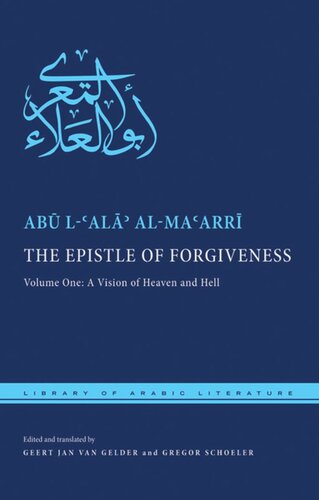

Most ebook files are in PDF format, so you can easily read them using various software such as Foxit Reader or directly on the Google Chrome browser.
Some ebook files are released by publishers in other formats such as .awz, .mobi, .epub, .fb2, etc. You may need to install specific software to read these formats on mobile/PC, such as Calibre.
Please read the tutorial at this link: https://ebookbell.com/faq
We offer FREE conversion to the popular formats you request; however, this may take some time. Therefore, right after payment, please email us, and we will try to provide the service as quickly as possible.
For some exceptional file formats or broken links (if any), please refrain from opening any disputes. Instead, email us first, and we will try to assist within a maximum of 6 hours.
EbookBell Team

5.0
28 reviewsOne of the most unusual books in classical Arabic literature, The Epistle of Forgiveness is the lengthy reply by the prolific Syrian poet and prose writer Abu l-?Ala? al-Ma?arri (d. 449 H/1057 AD), to a letter written by an obscure grammarian, Ibn al-Qarih. With biting irony, The Epistle of Forgiveness mocks Ibn al-Qarih's hypocrisy and sycophancy by imagining he has died and arrived with some difficulty in Heaven, where he meets famous poets and philologists from the past. He also glimpses Hell, and converses with the Devil and various heretics. Al-Ma?arri—a maverick, a vegan, and often branded a heretic himself—seems to mock popular ideas about the Hereafter. This book, the first of two volumes, includes Ibn al-Qarih’s initial letter to al-Ma?arri, as well as the first half of The Epistle of Forgiveness.
This translation is the first complete translation in any language and retains the many digressions, difficult passages, and convoluted grammatical discussions of the original typically omitted in other translations. It is accompanied by a comprehensive introduction and detailed annotation. Replete with erudite commentary, amusing anecdotes, and sardonic wit, The Epistle of Forgiveness is an imaginative tour-de-force by one of the most pre-eminent figures in classical Arabic literature.